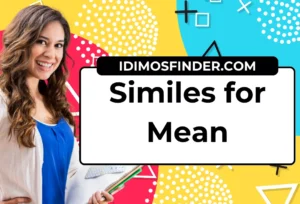When it comes to expressing ourselves warmly and thoughtfully, sometimes idioms about teeth offer just the right touch of familiarity and emotion. Teeth are more than just tools for eating—they’re symbols of strength, vulnerability, honesty, and even discomfort. Using idioms related to teeth can help you convey your feelings in a way that’s both vivid and caring, connecting deeply with others. Whether you want to describe a tough situation, a nervous smile, or a heartfelt promise, these idioms enrich your language with nuance and warmth.
Below, I’ve shared 25 common idioms about teeth, each with clear meanings, example sentences, useful tips on how to use them best, and alternative phrases you can try. These idioms will help you speak with empathy, making your communication more expressive and genuine.
Bite the bullet
Meaning: To face a difficult or unpleasant situation with courage.
In a sentence: Sometimes, you just have to bite the bullet and get through the tough times.
Best use: When encouraging someone to be brave or take necessary action despite discomfort.
Other ways to say: Face the music, tough it out, grin and bear it.
By the skin of your teeth
Meaning: To narrowly escape a bad situation.
In a sentence: She passed the exam by the skin of her teeth—it was a close call.
Best use: Describing situations where someone just barely succeeds or avoids failure.
Other ways to say: Just in time, barely made it, narrowly escaped.
Get your teeth into something
Meaning: To become fully involved or committed to a task or activity.
In a sentence: I’m excited to get my teeth into this new project at work.
Best use: Expressing enthusiasm or dedication to a challenge or interest.
Other ways to say: Dive into, throw yourself into, engage deeply.
Show your teeth
Meaning: To display strength or assertiveness.
In a sentence: Sometimes, you need to show your teeth to be taken seriously.
Best use: When advising someone to stand up for themselves firmly.
Other ways to say: Stand your ground, be assertive, make your presence felt.
Sweet tooth
Meaning: A strong liking for sugary foods.
In a sentence: I have a serious sweet tooth—I can’t resist chocolate.
Best use: Talking about preferences or habits in a light, personal way.
Other ways to say: Sugar lover, dessert fanatic, candy enthusiast.
By the tooth
Meaning: With great effort or difficulty.
In a sentence: He managed to finish the race by the tooth despite the injury.
Best use: Highlighting perseverance against odds.
Other ways to say: With difficulty, against all odds, struggling through.
Cut your teeth
Meaning: To gain initial experience in something.
In a sentence: I cut my teeth in journalism before moving to marketing.
Best use: Talking about early career or formative experiences.
Other ways to say: Learn the ropes, get started, gain first experience.
Fight tooth and nail
Meaning: To fight fiercely or with all your strength.
In a sentence: They fought tooth and nail to protect their community.
Best use: Describing determined effort or resistance.
Other ways to say: Battle fiercely, fight hard, struggle intensely.
Keep your teeth clenched
Meaning: To remain determined or endure pain without giving up.
In a sentence: She kept her teeth clenched through the difficult surgery.
Best use: Encouraging resilience during tough moments.
Other ways to say: Stay strong, hold on, endure bravely.
Long in the tooth
Meaning: Old or aging.
In a sentence: He’s getting a bit long in the tooth, but still full of energy.
Best use: Lighthearted way to talk about age without offending.
Other ways to say: Getting older, past your prime, seasoned.
Off your teeth
Meaning: To be extremely drunk or.
In a sentence: After the party, he was off his teeth and couldn’t walk straight.
Best use: Informal slang describing intoxication or wild behavior.
Other ways to say: Wasted, plastered, out of control.
Set your teeth on edge
Meaning: To annoy or irritate someone deeply.
In a sentence: That loud chewing sound really sets my teeth on edge.
Best use: Describing pet peeves or irritations.
Other ways to say: Get under someone’s skin, drive someone, irritate intensely.
Take the bit between your teeth
Meaning: To take control or act decisively.
In a sentence: It’s time to take the bit between your teeth and make a change.
Best use: Motivating someone to take initiative.
Other ways to say: Grab the reins, seize the moment, take charge.
Tooth and nail
Meaning: With intense effort or struggle.
In a sentence: She fought tooth and nail for her promotion.
Best use: Emphasizing fierce determination.
Other ways to say: All-out effort, with everything you’ve got, relentless.
Tooth for a tooth
Meaning: Justice or revenge in equal measure.
In a sentence: The old saying, tooth for a tooth, reminds us of fair retribution.
Best use: Discussing fairness or retaliation.
Other ways to say: Eye for an eye, tit for tat, reciprocal justice.
Teeth chatter
Meaning: To shiver from cold or fear.
In a sentence: His teeth were chattering during the cold winter night.
Best use: Describing physical reactions to temperature or anxiety.
Other ways to say: Shiver, tremble, shake.
Bite off more than you can chew
Meaning: To take on more responsibility than you can handle.
In a sentence: Don’t bite off more than you can chew with your new job.
Best use: Advising someone to be realistic about their limits.
Other ways to say: Overcommit, take on too much, stretch yourself thin.
Have a sweet tooth for something
Meaning: To have a fondness for something enjoyable.
In a sentence: She has a sweet tooth for classic novels.
Best use: Talking about liking something beyond literal sweets.
Other ways to say: Love, adore, have a passion for.
Show your gnashers
Meaning: To smile or bare your teeth.
In a sentence: He showed his gnashers with a warm smile.
Best use: Friendly way to describe smiling.
Other ways to say: Smile, grin, beam.
Gnash your teeth
Meaning: To express frustration or anger.
In a sentence: She gnashed her teeth when she heard the bad news.
Best use: Showing emotional pain or anger.
Other ways to say: Fume, seethe, be furious.
Teeth like pearls
Meaning: Having very white and beautiful teeth.
In a sentence: Her teeth were like pearls—bright and perfect.
Best use: Complimenting a lovely smile.
Other ways to say: Pearly whites, sparkling teeth, dazzling smile.
By the tooth
Meaning: Firmly or tightly.
In a sentence: Hold the rope by the tooth to keep your grip secure.
Best use: Describing a strong hold or grip.
Other ways to say: Firmly, tightly, securely.
Grit your teeth
Meaning: To endure pain or difficulty with determination.
In a sentence: You just have to grit your teeth and keep going.
Best use: Encouraging persistence in the face of adversity.
Other ways to say: Bear it, tough it out, persevere.
Eat someone’s teeth out
Meaning: To be very envious or jealous.
In a sentence: She could eat his teeth out for the new car he bought.
Best use: Expressing strong jealousy in a humorous way.
Other ways to say: Be jealous, envy, covet.
Have teeth
Meaning: To have power or effectiveness.
In a sentence: The new law really has teeth and will bring change.
Best use: Describing rules or actions that are impactful.
Other ways to say: Be effective, have power, be influential.
Hold your teeth
Meaning: To keep quiet or restrained.
In a sentence: Sometimes it’s better to hold your teeth and listen.
Best use: Advising silence or patience.
Other ways to say: Keep quiet, bite your tongue, stay silent.
Make your teeth chatter
Meaning: To cause nervousness or fear.
In a sentence: The horror movie made my teeth chatter all night.
Best use: Describing feelings of fear or anxiety.
Other ways to say: Scare, frighten, unsettle.
Conclusion
Teeth idioms add a rich layer of warmth and nuance to our conversations. They allow us to describe complex emotions and situations with clarity and heart. Whether you’re encouraging resilience, expressing delight, or showing empathy, these idioms about teeth bring your words to life in a way that feels personal and relatable. Try weaving some of these expressions into your daily chats or writing — you’ll be surprised at how much they help you connect on a deeper level.
Remember, communication is not just about what you say, but how you say it — and sometimes, a well-chosen idiom is all it takes to brighten a conversation.












